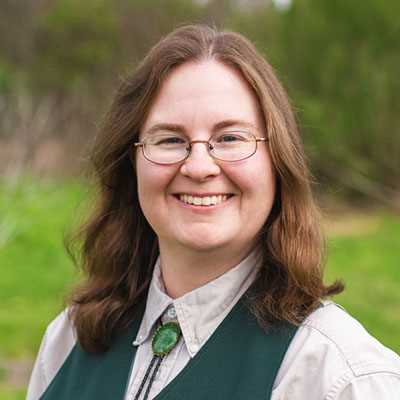Stocking up on bottled water is usually a good idea during an emergency, but buying bottled water during the COVID-19 pandemic could actually put you and others at risk according to health officials.
The Centers for Disease Control and Prevention (CDC) says the best way to prevent the illness is to avoid being exposed to the virus. It spreads mainly person-to-person, so avoiding people through social distancing — staying at least six feet away from others — and staying away from public places is a good strategy.
When you go out to buy bottled water, you may expose yourself to the virus. Also, excessive stockpiling of supplies like bottled water means other people in the community may not be able to get what they need. Read more about stockpiling in this AgriLife Today article.
Texas Water Resources Institute Director Dr. John Tracy pointed out that typical disasters like hurricanes and earthquakes can disrupt or damage basic water service.
“Getting bottled water is a good idea in those situations,” he said. “However, for the COVID-19 pandemic, going out to buy bottled water increases your chances of exposure to the virus, as opposed to relying on tap water provided by water utilities.”
According to both the U.S. Environmental Protection Agency (EPA) and the World Health Organization (WHO), the COVID-19 virus has not been detected in drinking water. It is also unlikely to survive in treated drinking water like that found in the United States.
“The COVID-19 virus is an enveloped virus, with a fragile outer membrane,” reads a WHO factsheet. “Generally, enveloped viruses are less stable in the environment and are more susceptible to oxidants, such as chlorine.”
U.S. drinking water systems are treated with chlorine to kill pathogens that can make people sick. Chlorine treatment of drinking water has been used in the United States since 1908.
The use of chlorine to disinfect drinking water has advanced since then, and Americans should feel very secure, according to Dr. Michael McGuire, adjunct professor of civil and environmental engineering at the University of California, Los Angeles.
“Since 1989 when the EPA adopted the Surface Water Treatment Rule, all surface water utilities in the United States have to accomplish four logs, or 99.99 percent, removal of viruses from drinking water,” he said.
“There are some good reasons why people buy bottled water, but in this particular case, drinking water treatment plants are absolutely designed to take care of this kind of pathogen.”
Water utilities are also taking the COVID-19 pandemic and the public’s need for clean, dependable water seriously. According to an announcement by the American Water Works Association (AWWA), many water systems across the United States are suspending water shutoffs for non-payment.
“Water utilities throughout the United States and Canada are prepared to protect public health in normal conditions and in emergencies, and they are committed to keeping safe water flowing, 24/7,” said AWWA CEO David LaFrance.
“During times like these, safe and reliable water service is essential for drinking and food preparation, hand-washing and carrying away waste,” LaFrance said.
El Paso Water President and CEO John Balliew said he is troubled by those who are trying to profit from people’s fears over the COVID-19 pandemic.
“We are seeing many comments on social media implying that El Paso Water is unsafe to drink, and encouraging people to stockpile bottled water or purchase a filter,” he said in a statement on the utilities’ website.
“As President and CEO of El Paso Water, a chemical engineer and a father of three, let me reassure all El Pasoans that our water is clean and safe to drink. All El Paso Water employees have a vested interest in making sure our region’s water is of the highest quality because we are customers too.”
Anne Hayden, communications manager for the San Antonio Water Systems, said that consumers can be confident.
“We have seen the rush for bottled water and we want to assure our customers that there is no water emergency. There’s no need to buy all the water on the shelf,” she said.
“The water that is coming through people’s taps is something that is really dependable. We’re also working with our employees to ensure that they stay healthy so they can provide the service to our community that our community is depending on,” Hayden added.
“From a water quality perspective, from a business continuity perspective, we’re going to have the water available that our community is depending on.”

&color=fff&textposition=5,5&dropshadow=true&fontfamily=arial&fontsize=14&fontopacity=40&quality=60)
